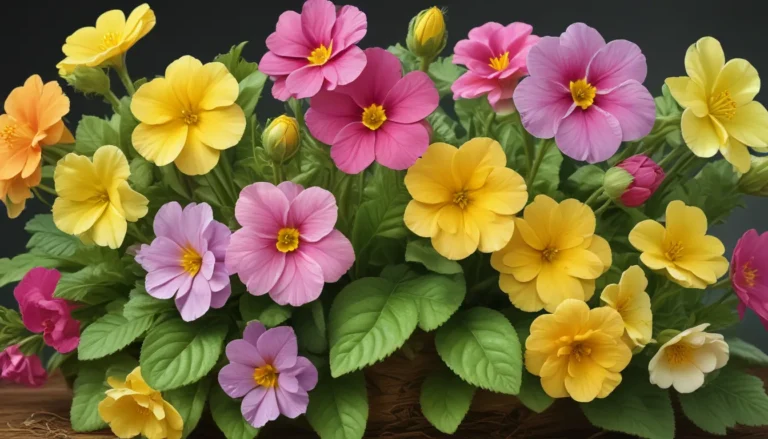The pictures we use in our articles might not show exactly what the words say. We choose these pictures to make you interested in reading more. The pictures work together with the words but don’t take their place. The words still tell you the important facts.
Peyote, the small, spineless cactus native to North America, holds a deep spiritual significance for indigenous communities and has been used in religious ceremonies for centuries. This extraordinary plant, known scientifically as Lophophora williamsii, has a rich history and cultural importance that make it a subject of enduring fascination. Join us on a journey through 18 fascinating facts about peyote, uncovering the mysteries and marvels that have surrounded this remarkable cactus for generations.
The Peyote Cactus: A Sacred Plant with Unique Properties
The Peyote cactus, scientifically known as Lophophora williamsii, is a small, spineless cactus native to the southwestern United States and Mexico. Its unique appearance, with button-like protrusions and a crown-like shape, has contributed to its symbolic and ceremonial significance in indigenous cultures. This culturally revered plant plays a central role in religious and spiritual ceremonies of various Native American tribes, including the Huichol, Tarahumara, and Navajo.
Mescaline: The Psychoactive Compound in Peyote
Peyote contains a psychoactive alkaloid called mescaline, which is responsible for its hallucinogenic effects. Mescaline is known for inducing altered states of consciousness, profound introspection, and vivid sensory experiences. It is considered a powerful entheogen, a substance used to facilitate spiritual experiences. The ceremonial use of Peyote is deeply intertwined with indigenous cosmologies and represents cultural resilience.
The Native American Church and Peyote Rituals
Established in the late 19th century, the Native American Church incorporates Peyote as a sacrament in its religious ceremonies. The use of Peyote in the church's rituals is protected under U.S. law, recognizing its significance to the spiritual practices of its members. Before partaking in Peyote ceremonies, participants often engage in fasting and prayer as a means of spiritual preparation, purifying the mind, body, and spirit for a profound and meaningful experience.
Legal and Conservation Issues Surrounding Peyote
In the United States, Peyote is classified as a Schedule I controlled substance under the Controlled Substances Act. However, an exemption exists for its religious use by members of the Native American Church, highlighting the legal and cultural complexities surrounding its status. Conservation efforts are essential to protect wild Peyote populations from overharvesting and habitat loss. Regulations govern the cultivation and distribution of Peyote to promote sustainable practices and preserve natural habitats crucial for its survival.
The Spiritual Journey of Peyote Ceremonies
Individual responses to Peyote can vary widely, with factors such as dosage, set, and setting influencing the nature of the experience. While some individuals report profound spiritual insights and emotional healing, others may experience anxiety or discomfort during the effects of the plant. Peyote ceremonies often involve communal singing and drumming, creating a collective and rhythmic atmosphere that enhances the spiritual journey facilitated by the ritual.
Cultural Appropriation and Respectful Engagement with Peyote
As interest in Peyote and indigenous spiritual practices grows, discussions about cultural appropriation and respectful engagement with traditional knowledge have emerged. It is essential to approach the subject with cultural sensitivity and a deep respect for the traditions and beliefs associated with Peyote use. The conservation of Peyote requires a balanced approach that respects both cultural and ecological dimensions, honoring indigenous rights and promoting sustainable harvesting practices.
The Complexities of Peyote: Tradition, Research, and Conservation
The psychoactive properties of Peyote, particularly mescaline, have drawn interest from researchers studying altered states of consciousness and their potential therapeutic applications. Studies on the plant's effects offer insights into the brain and have implications for mental health research. Efforts to conserve Peyote and its natural habitats involve collaboration between indigenous communities, conservation organizations, and governmental agencies, recognizing the intertwined cultural and ecological significance of the plant.
The Soul of Peyote: Cultural Resilience and Spiritual Continuity
For indigenous peoples, Peyote represents cultural resilience and spiritual continuity, embodying their enduring connections to the land, traditions, and spiritual heritage. Its significance extends beyond its botanical properties, encompassing a profound cultural and historical legacy. Safeguarding Peyote calls for a balanced approach that respects the cultural significance of the plant while addressing ecological concerns, preserving the natural habitats crucial for its survival.
In conclusion, peyote is a fascinating and culturally significant plant with a rich history and unique properties. Its traditional use in indigenous ceremonies and its potential therapeutic applications have garnered widespread interest. Despite its controversial status and legal restrictions, peyote continues to be a subject of scientific research and cultural preservation efforts. As we continue to explore and understand the complexities of this extraordinary plant, it is crucial to approach its conservation and sustainable use with respect for indigenous traditions and ecological balance.






